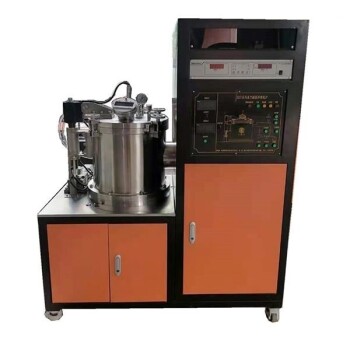Selecting the best pump for vacuum distillation involves evaluating several critical factors to ensure compatibility, efficiency, and safety. Key considerations include the type of solvents being distilled, the required vacuum pressure, flow rate, chemical compatibility, and the ability to handle wet vapors. Oil-free diaphragm pumps are often preferred for their chemical resistance and low maintenance, while rotary vane pumps may be suitable for applications requiring deeper vacuum levels. The pump must also match the system's volume and provide adjustable vacuum control for precise operation. Below, we break down the essential aspects to guide your decision-making process.
Key Points Explained:

-
Type of Pump:
- Diaphragm Pumps: Ideal for oil-free operation and excellent chemical compatibility. These pumps are suitable for handling wet vapors and are often used in vacuum distillation due to their resistance to corrosion and low maintenance requirements.
- Rotary Vane Pumps: These pumps can achieve deeper vacuum levels (e.g., 50 microns) and are recommended for short-path distillation. However, they require regular oil changes to maintain performance and prevent contamination.
-
Chemical Compatibility:
- The pump must be compatible with the solvents used in the distillation process. Diaphragm pumps are often preferred for their chemical resistance, especially when dealing with aggressive or corrosive solvents.
- Rotary vane pumps, while effective, may require specific oils or maintenance routines to ensure compatibility with certain chemicals.
-
Vacuum Pressure and Flow Rate:
- The pump must achieve the required vacuum pressure for the specific distillation application. For example, high-boiling point solvents may require a pump with a low ultimate vacuum.
- Flow rate should be proportional to the system volume to ensure efficient operation without overloading the pump.
-
Handling Wet Vapors:
- Vacuum distillation often involves processing wet vapors. The pump must be capable of handling these without damage or performance degradation. Diaphragm pumps are particularly well-suited for this purpose.
-
Solvent Recovery:
- Consider pumps with solvent recovery options at both the inlet and outlet. This feature is crucial for capturing and reusing solvents, reducing waste, and improving efficiency.
-
Adjustable Vacuum Control:
- Precision in vacuum control is essential for optimizing the distillation process. Pumps with adjustable vacuum levels allow for fine-tuning, which is particularly important for sensitive or complex separations.
-
System Size and Capacity:
- The pump must be appropriately sized based on the rotovap's capacity and the size of the evaporation flask. A mismatch can lead to inefficiency, safety risks, or pump damage.
-
Maintenance and Durability:
- Consider the maintenance requirements of the pump. Diaphragm pumps generally require less maintenance compared to rotary vane pumps, which need regular oil changes and inspections.
- Durability and resistance to wear are also important, especially in high-throughput or continuous operation environments.
By carefully evaluating these factors, you can select a vacuum pump that meets the specific demands of your vacuum distillation process, ensuring optimal performance, safety, and efficiency.
Summary Table:
| Factor | Key Considerations |
|---|---|
| Type of Pump | Diaphragm pumps: Oil-free, chemical-resistant. Rotary vane pumps: Deeper vacuum levels. |
| Chemical Compatibility | Ensure compatibility with solvents. Diaphragm pumps preferred for corrosive chemicals. |
| Vacuum Pressure | Match required vacuum levels for specific solvents and applications. |
| Flow Rate | Proportional to system volume for efficient operation. |
| Wet Vapors Handling | Diaphragm pumps are ideal for handling wet vapors without damage. |
| Solvent Recovery | Look for pumps with solvent recovery options to reduce waste. |
| Adjustable Vacuum | Precision control for sensitive separations. |
| System Size | Match pump capacity to rotovap and flask size. |
| Maintenance | Diaphragm pumps require less maintenance; rotary vane pumps need regular oil changes. |
Ready to find the perfect vacuum pump for your distillation needs? Contact our experts today for personalized guidance!


















